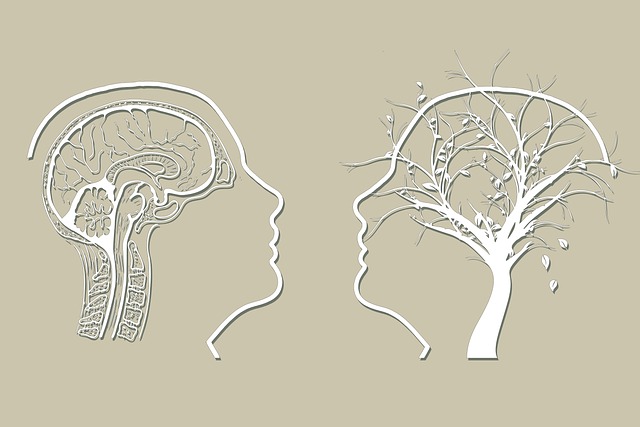Burnout among healthcare providers caring for elderly Spanish-speaking patients is addressed through tailored therapy, focusing on communication strategies, compassion cultivation, and mental wellness coaching. Creating a supportive work environment, incorporating self-care practices, and promoting culturally sensitive mental healthcare are key to preventing burnout while improving provider well-being and patient outcomes, especially in diverse linguistic settings. Community engagement, policy advocacy, and specialized services targeting Spanish-speaking elders holistically mitigate burnout and enhance overall mental health.
Healthcare provider burnout is a growing concern, especially among those serving elderly Spanish-speaking populations. This article explores comprehensive strategies to prevent burnout, focusing on creating supportive work environments, integrating mental health care and self-care practices, and building resilient communities. We delve into the unique challenges faced by healthcare providers working with elderly Spanish speakers, offering insights that can be adapted to enhance the overall well-being of these essential workers. Incorporating effective therapy for elders Spanish speaking is a key aspect in mitigating burnout and ensuring better patient care.
- Understanding Burnout Among Healthcare Providers Serving Elderly Spanish Speakers
- Creating a Supportive Work Environment: Strategies for Prevention
- Incorporating Mental Health Care and Self-Care Practices
- Building Resilient Communities: A Collaborative Approach to Long-Term Wellbeing
Understanding Burnout Among Healthcare Providers Serving Elderly Spanish Speakers

Burnout among healthcare providers serving elderly Spanish-speaking populations is a growing concern. This demographic faces unique challenges, often stemming from language barriers and cultural differences, which can increase caregiver stress. Effective communication strategies are vital to mitigating burnout; ensuring clear and accessible interaction between patient and provider fosters a sense of trust and understanding, lightening the emotional burden on caregivers.
The caregiving environment for Spanish-speaking elders may benefit greatly from compassion cultivation practices and Mind Over Matter principles. These techniques, which focus on mindfulness, empathy, and positive reframing, have been shown to reduce stress and enhance job satisfaction. Tailoring therapy for elders Spanish speakers using these strategies can create a more supportive atmosphere, preventing burnout while improving both caregiver well-being and patient outcomes.
Creating a Supportive Work Environment: Strategies for Prevention

Creating a supportive work environment is a powerful strategy to prevent burnout among healthcare providers, especially those caring for elderly Spanish-speaking patients who often require specialized therapy. This involves cultivating a culture of compassion and mutual support within healthcare institutions. One effective approach is implementing mental wellness coaching programs tailored to address the unique challenges faced by these caregivers. These programs can facilitate open discussions about stress management and emotional healing processes, promoting resilience and coping mechanisms.
By prioritizing staff well-being, healthcare organizations can enhance job satisfaction and overall morale. Incorporating mood management techniques in employee development plans further strengthens this preventive measure. A supportive environment encourages professionals to seek help when needed, whether through therapy for elders or mental wellness coaching, ensuring that emotional healing processes are accessible and integrated into the work culture.
Incorporating Mental Health Care and Self-Care Practices

Incorporating mental health care and self-care practices is a vital strategy to prevent burnout among healthcare providers, especially those caring for elderly Spanish-speaking patients. Many of these individuals face unique challenges due to cultural barriers, language differences, and varying access to services. Providing therapy specifically tailored for elders from diverse linguistic backgrounds can significantly enhance their well-being and that of the caregivers. This involves not only ensuring accessibility through interpreters but also culturally sensitive therapeutic approaches.
A risk assessment for mental health professionals should be conducted regularly to identify potential burnout triggers. By fostering empathy building strategies and encouraging self-care practices, healthcare providers can create a supportive environment. Regular check-ins, peer support groups, and structured relaxation techniques can help professionals maintain their emotional resilience, especially when navigating complex patient cases. These measures are crucial in promoting long-term sustainability within the field of elderly care.
Building Resilient Communities: A Collaborative Approach to Long-Term Wellbeing

Building resilient communities is a collaborative approach to long-term wellbeing, especially crucial for addressing healthcare provider burnout. By fostering strong connections and support systems among professionals, patients, and families, we can create an environment that nurtures mental health and resilience. This involves integrating public awareness campaigns that promote work-life balance, mental health policy analysis and advocacy to ensure supportive regulations, and cultural sensitivity in mental healthcare practice to meet the diverse needs of our communities.
Targeting Spanish-speaking elders through specialized therapy services is a significant aspect of this strategy. Cultural sensitivity training equips healthcare providers with the skills to offer empathetic care tailored to the unique beliefs and values of this demographic, enhancing their overall wellbeing. Such initiatives contribute to a holistic approach where community engagement, policy advocacy, and personalized care converge to build a sustainable network that prevents burnout and promotes the mental health of both healthcare providers and the communities they serve.
Healthcare provider burnout prevention is a multifaceted approach that requires creating supportive work environments, integrating mental health care and self-care practices, and fostering resilient communities. By understanding the unique challenges faced by healthcare providers serving elderly Spanish speakers, we can implement strategies that enhance job satisfaction and overall wellbeing. Incorporating therapy for elders Spanish speaking into routine care not only addresses language barriers but also promotes better patient outcomes and staff resilience. Through collaboration and a holistic approach, we can build thriving communities where healthcare providers are supported and inspired to continue their vital work.











